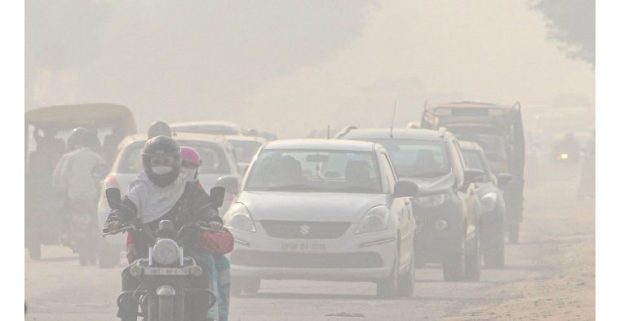
Air pollution, heat linked to lower sleep quality, study finds
PTI, Apr 19, 2023, 12:55 PM IST

Image for representation
Air pollution, heat, and high levels of carbon dioxide and ambient noise may all adversely affect our ability to get a good night’s sleep, according to a study.
The research, published in the journal Sleep Health, is one of the first to measure multiple environmental variables in the bedroom and analyse their associations with sleep efficiency—the time spent sleeping relative to the time available for sleep.
The researchers found that in a group of 62 participants tracked for two weeks with activity monitors and sleep logs, higher bedroom levels of air pollution (particulate matter less than 2.5 micrometers in size or PM2.5), carbon dioxide, noise, and temperature were all linked independently to lower sleep efficiency.
”These findings highlight the importance of the bedroom environment for high-quality sleep,” said study lead author Mathias Basner, a professor at the University of Pennsylvania, US.
In addition to work and family obligations that compete with sleep for time, a quickly changing environment due to growing urbanisation and climate change seems to have made it harder to get a good night’s sleep, the researchers said.
Sleep that is of inadequate duration, or inadequate efficiency due to frequent disruption, affects work productivity and quality of life. It also has been linked to a higher risk of chronic diseases including heart disease, type 2 diabetes, depression, and dementia, they said.
The team, including researchers from the University of Louisville, US, recruited participants from the National Institutes of Health Green Heart Project that investigates the effects of planting 8,000 mature trees on the cardiovascular health of Louisville residents.
For each of the environmental variables measured, the researchers compared sleep efficiency during exposures to the highest 20 per cent of levels versus lowest 20 per cent of levels.
They found that high noise was associated with a 4.7 per cent decline in sleep efficiency, high carbon dioxide with a 4 per cent reduction, high temperature with a 3.4 per cent decline, and high PM2.5 with a 3.2 per cent reduction.
Two other sleep environment variables, relative humidity and barometric pressure, appeared to have no significant association with sleep efficiency among the participants, according to the researchers.
”We seem to habituate subjectively to our bedroom environment, and feel there is no need to improve it, when in fact our sleep may be disturbed night after night as evidenced by the objective measures of sleep we used in our study,” Basner added.
Udayavani is now on Telegram. Click here to join our channel and stay updated with the latest news.
Top News

Related Articles More

High nitrate levels in groundwater threaten public health in 440 districts: Report

Gujarat IMA opposes ‘mixopathy’ proposal; says it poses ‘severe risks’ to people’s health

Study links social inequality to dementia-related changes in brain
People single all their lives might have low life satisfaction: Study

Drinking tea, coffee linked to lower risk of head and neck cancer: Study
MUST WATCH
Latest Additions

Free Ayurvedic check-up camp held at Sri Krishna Matha

Govt launches 2 special categories visas for international students

Unmarried couples no longer welcome, OYO changes check-in rules

Lokayukta unearths Rs 16.85 crore land allotment scam in Ambedkar Development Corporation

He had no right to talk to Bumrah: Gambhir criticises Konstas
Thanks for visiting Udayavani
You seem to have an Ad Blocker on.
To continue reading, please turn it off or whitelist Udayavani.



















